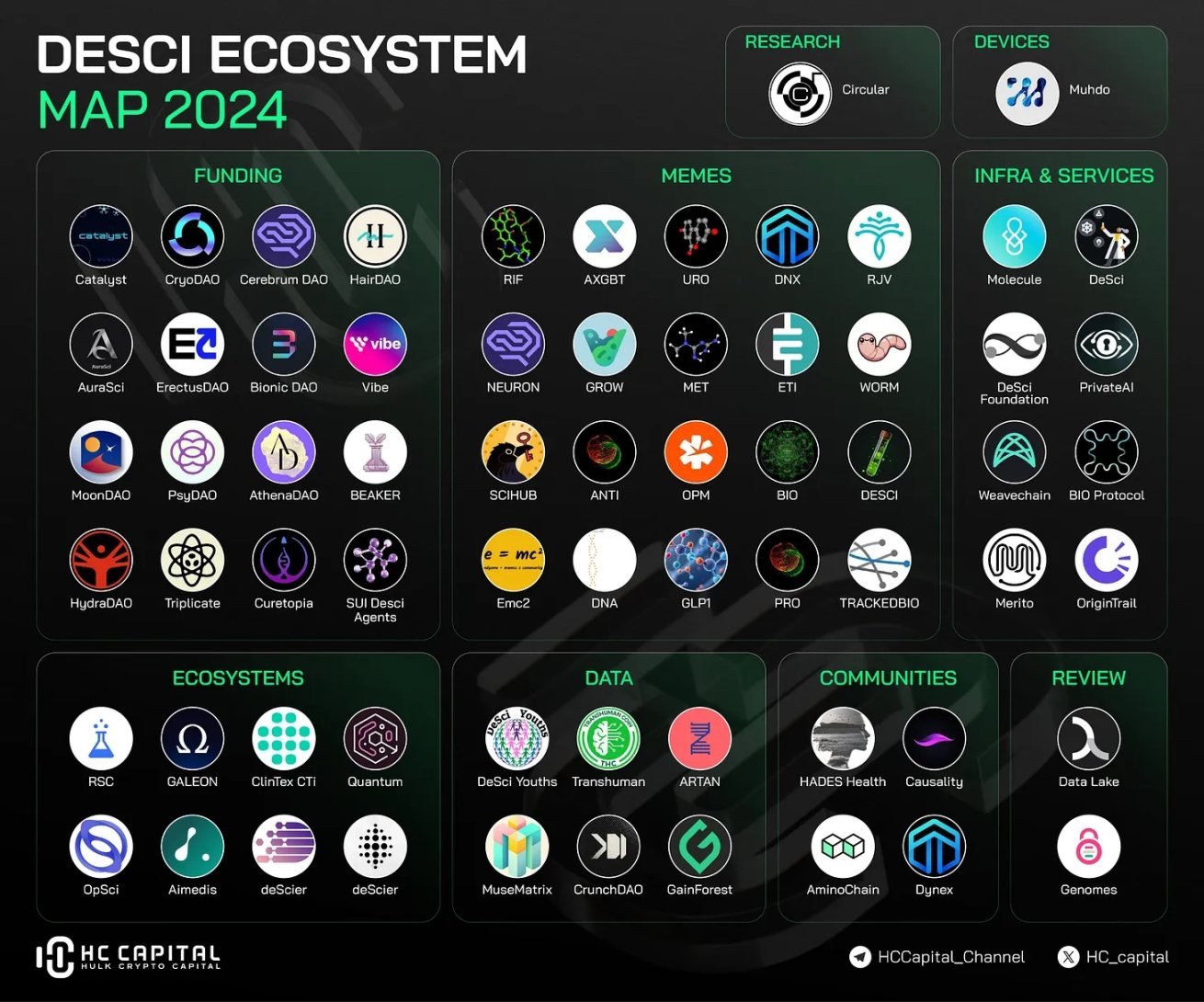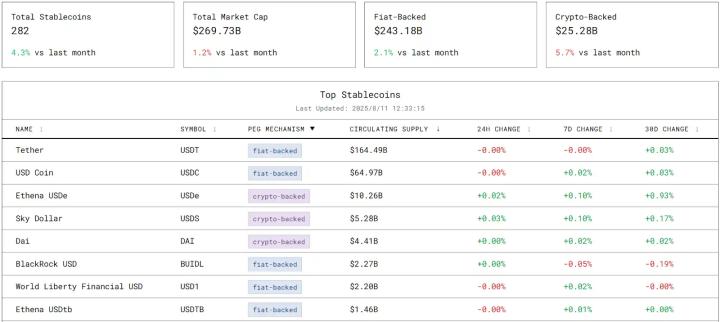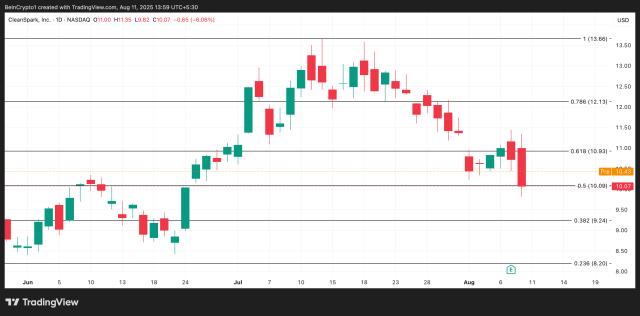I have a friend who spent seven entire months writing a scientific research fund application.
Seven months, which is longer than many people spend preparing for their wedding, with stress that is arguably even greater. She is a talented cancer treatment researcher who has spent more energy raising funds than actually conducting scientific research.
The entire system is completely backwards. Research requires funding, but to get funding, you must first prove the research will definitely succeed - but how can you prove success without doing the research?

In contrast, some things are simply absurd: a YouTube blogger launched a "counting rice grains" crowdfunding campaign and raised $100,000 in a single weekend. The comparison is truly ironic.
Now in the crypto field, a movement called DeSci (Decentralized Science) is emerging, attempting to revolutionize scientific research funding using cryptocurrency and blockchain technology.
Don't dismiss it hastily; after hearing about it, you might change your mind. This method might actually work.
How Bad is the Current System?
The traditional scientific research funding process works like this: researchers write detailed research proposals, submit them to government agencies or companies, and then wait 6 to 18 months for a response. Most applications are rejected, and even if approved, they come with numerous restrictions, causing researchers to spend more time on paperwork than on actual research.
The core of this process is "risk reduction," which sounds reasonable, but the problem is that breakthrough discoveries are inherently risky. From antibiotics to the internet, the most significant scientific breakthroughs were often initially directions that review committees would not fund.
There's also the issue of paper publication: researchers must publish their results in expensive academic journals that charge exorbitant fees and set up paywalls. As a result, research funded by taxpayers is inaccessible to those same taxpayers.
Ultimately, excellent researchers waste years in bureaucratic processes instead of solving actual problems. Important research is delayed or even stillborn, while the public who supports most basic research through taxes is excluded from the results they've paid for.
DeSci Emerges
DeSci (Decentralized Science) essentially applies cryptocurrency concepts to scientific research: researchers no longer have to "beg" funds from review committees but can directly crowdfund from people interested in their research; research results are no longer locked behind paywalls but stored on public blockchains, accessible to anyone.
When Ethereum co-founder Vitalik Buterin and former Binance CEO CZ began discussing this concept publicly, DeSci gained widespread attention. When crypto leaders focus on something, it often means the underlying infrastructure is ready for implementation.
The specific operational model is as follows: researchers issue tokens representing their project, people provide funding by purchasing these tokens, and if the research is successful and generates profitable results, token holders can share the benefits.
This is not just a theoretical concept; many companies are building real infrastructure for decentralized science.
Take BIO Protocol, an important player in the field, which received support from Binance Labs and has substantial financial strength. BIO created "BioDAOs", essentially crowdfunding investment communities for biotechnology research. Instead of a few wealthy individuals deciding which cancer therapies are worth developing, thousands of people can jointly fund and vote on research directions.
Molecule and VitaDAO, focusing on longevity research, tokenize intellectual property rights: when researchers achieve certain results, ownership is distributed to all supporters. Currently, they support projects including aging research at Newcastle University and longevity research at the University of Copenhagen.
Funding scale is continuously growing. These platforms have processed millions of dollars in research funding, with some individual projects raising hundreds of thousands of dollars through token sales. Although still small compared to traditional funding, the growth rate is astonishing.

The more you think about DeSci, the more significant it seems. Scientific research is inherently a collaborative process, with researchers exploring on previous work, sharing data, and peer reviewing. Blockchain technology is precisely designed for this transparent collaboration.
The traditional funding system has created distorted incentive mechanisms: to secure funding, researchers must exaggerate the certainty of their research, which actually hinders exploration of "uncertain but potentially breakthrough" directions. DeSci reverses this. It rewards researchers for sharing all data, including failed experiments, because these might help others avoid detours.
Another benefit is enabling global researcher participation. A researcher in Nigeria with a good idea can raise funds globally without backing from Western universities or funding institutions. This has profound significance for the democratization of scientific progress.
Transparency is inherent: when research is funded through blockchain tokens, everyone can clearly see where the funds go, eliminating speculation about whether expenses are used for actual research or administrative costs.
Risks and Challenges
Of course, risks cannot be ignored. The biggest problem lies in quality control. Although traditional peer review has various flaws, it can indeed filter out some garbage research. In a decentralized system, how can we prevent people from funding obviously unreliable scientific research projects?
Volatility is also a realistic challenge. If a five-year cancer research project is funded by crypto tokens, what happens if the token price plummets 90%? Long-term research requires stable financial support.
Regulatory uncertainty also exists. Most countries have complex regulations in medical research, drug development, and intellectual property rights. It is currently unclear how tokenized research will integrate into the existing legal framework.
To be honest, most scientists are not "natives" of the crypto field, and it is indeed difficult to suddenly require them to become experts in token economics and DAO governance.
Conclusion
Despite numerous problems, the momentum of DeSci cannot be ignored. Related infrastructure is increasingly improving, funding is continuously growing, while traditional scientific research funding systems are declining. When funding agencies take 18 months to approve emergency research funds, while crypto crowdfunding can be completed in just a few days, the efficiency gap is obvious.
Early projects are mostly concentrated in biotechnology and longevity research fields, which is reasonable, as these areas have clear commercial potential: if the funded research gives birth to a new drug, token holders can share the profits. However, this model is actually applicable to any research that can ultimately create value.
I believe we are in the early stages of a major undertaking. It's not about crypto replacing traditional scientific research funding overnight, but providing a new path that is faster, more transparent, and easier for global researchers to access.
The real test for DeSci is whether it can produce actual scientific breakthroughs, not just raise money. But given the current state of traditional scientific research funding, trying new methods is worthwhile.
This is just the beginning. The DeSci field is developing rapidly, with new projects constantly emerging, and real money is flowing into actual research. At the intersection of cryptocurrency and scientific research funding, opportunities are being born that did not exist a year ago.







